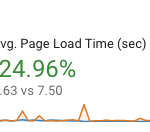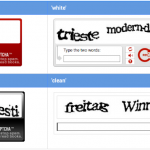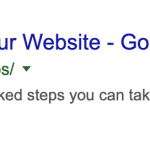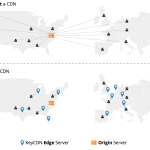A Chance to Give Google Feedback About Your Small Site
The Problem: big brands are dominating search results pages (SERPs)
One of the most common complaints coming from SEOs and webmasters over the last few months has been about big brands taking over search results pages. Various webmaster and SEO forums have threads on the topic, and the Internet retailer 2013 search marketing guide had this to say (emphasis mine):
With the implementation of Google Panda in February 2011 and Penguin in May 2012, Google changed its search engine algorithm to lower the rankings of web retailers whose sites featured static and generic content available on many other sites. Moving up under the new rules are retailers that offer detailed content, such as unique product descriptions and images, are smart at using reams of customer information to create content that appeals to shoppers looking for a specific brand or SKU, or that bring original content to their web sites in the form of consumer reviews and other content drawn from online social networks.
The biggest retailing brands tended to be the winners from these changes, and that shows up in their dominance of the natural search rankings in the new 2013 Internet Retailer Search Engine Marketing Guide.
Big brands have bigger signals
If you think about it from the search engine’s point of view, it’s not that hard to understand why big brands like Amazon, Sears, or eBay would have an easy time ranking well. Once you boil it down, search engines like Google are looking for a set of signals to indicate that a page of content is important and relevant. Signals like:
- Unique content about the product (any big site will have lots of reviews, which makes for tons of unique content generated at no cost)
- Links and other social signals that point to the domain or page ( big companies will always have lots of these)
- Basic on-page optimization (every big site employs H1s, titles, etc by now)
- Other more minor factors like Microdata, server response time, and other technical issues. Large sites have more resources to ensure these ducks are all in a row.
So why shouldn’t these big sites be ranking first?
For commodity type items, where you already know exactly what you are getting, and price is the only major differentiating factor, it is hard to argue that Amazon or eBay shouldn’t rank highly. However, for niche product, or any items where the user has questions that need to be answered before they can make a purchase decision, I think a pretty strong case can be made for more specialty retailers:
- The vast majority of the products sold on Amazon, Sears, or other big websites is offered and shipped by another company altogether. It isn’t necessarily easy to ask them questions or access relevant resources like FAQs or other helpful pages that would be on a specialty website, but not on a big shopping aggregator like Amazon.
- Items that require a more considered purchase decision benefit greatly from interaction with the merchant selling it – specialty retailers with on-site chat and other interactive sales tools can provide a much better experience than massive shopping aggregators can.
- The tyranny of choice – I believe merchandising is a bit of a lost art nowadays, as most websites rely on software driven algorithms to recommend products based on prior purchases… I would much rather see a smaller list of hand selected items that truly complement what I’m looking at, and only a smaller retailer would ever bother doing this.
- Real expertise beats aggregation. I have found that smaller retailers are more careful in their purchasing decisions, and are better at focusing on a smaller number of products that are appealing, as opposed to simply carrying everything a vendor makes.
- Gaming/cheating – due to the economic incentives, websites like Amazon are far more likely to have fake reviews and other dishonest tactics employed, compared to a carefully curated specialty retailer.
Tell Google about your small site, and why it should rank
Here’s your chance to give feedback to the Google search team:
Matt Cutt’s Google doc – use to submit your feedback
Google makes it clear that you shouldn’t expect any changes as a result of your feedback, but I think it is reasonable to expect that they have noticed the complaints about big brands dominating SERPs, and are at least thinking about ways of balancing the scales. Here is your chance to make the case for your site, in particular I would focus on why your site is a more relevant result than a big retailer like Amazon or eBay.
More from Fourth Wave
David Norris
Latest posts by David Norris (see all)
- NetSuite Announces Plans to End Promotion Functionality for Site Builder - January 16, 2020
- Most NetSuite Websites Are No Longer Tracking Safari Conversions for Adwords - November 20, 2017
- Make Your NetSuite Site Builder Site Secure – HTTPS Throughout - May 28, 2017
- An Introduction to Automating XML Sitemaps for NetSuite Companies - November 13, 2016
- An Introduction to NetSuite’s Reference Checkout & My Account Bundles - April 18, 2016






